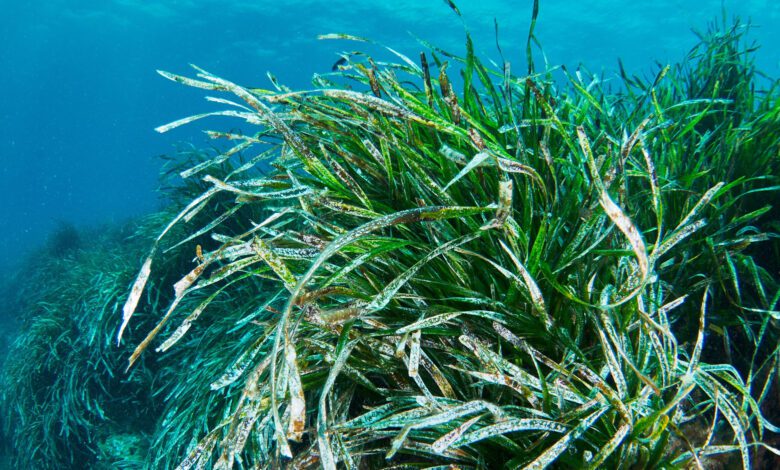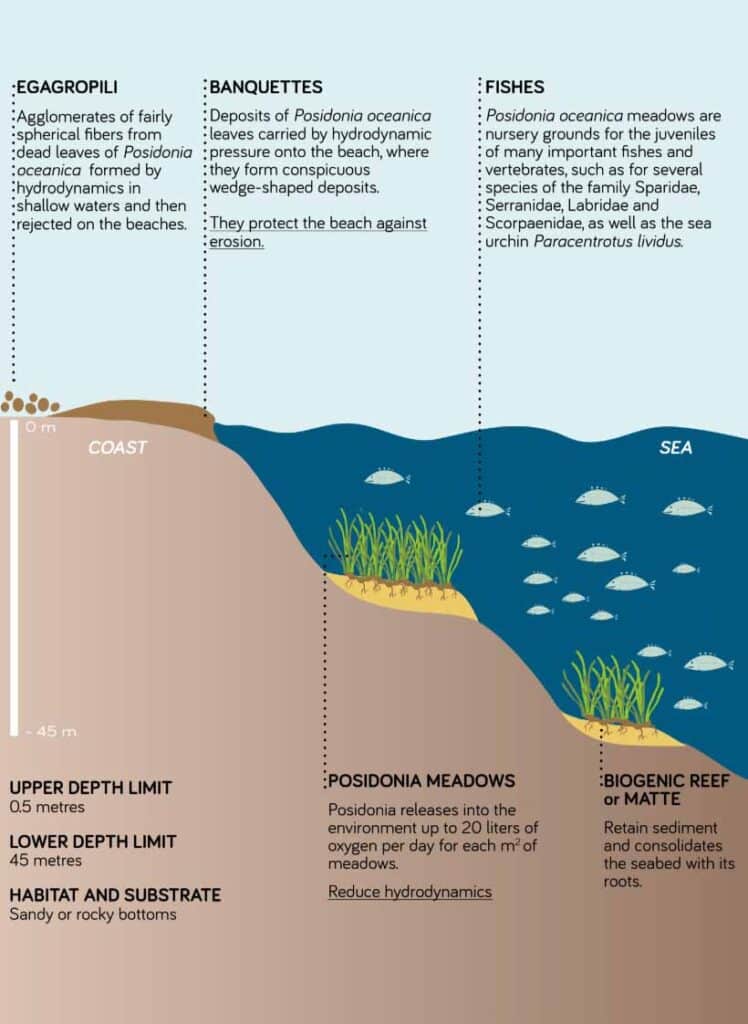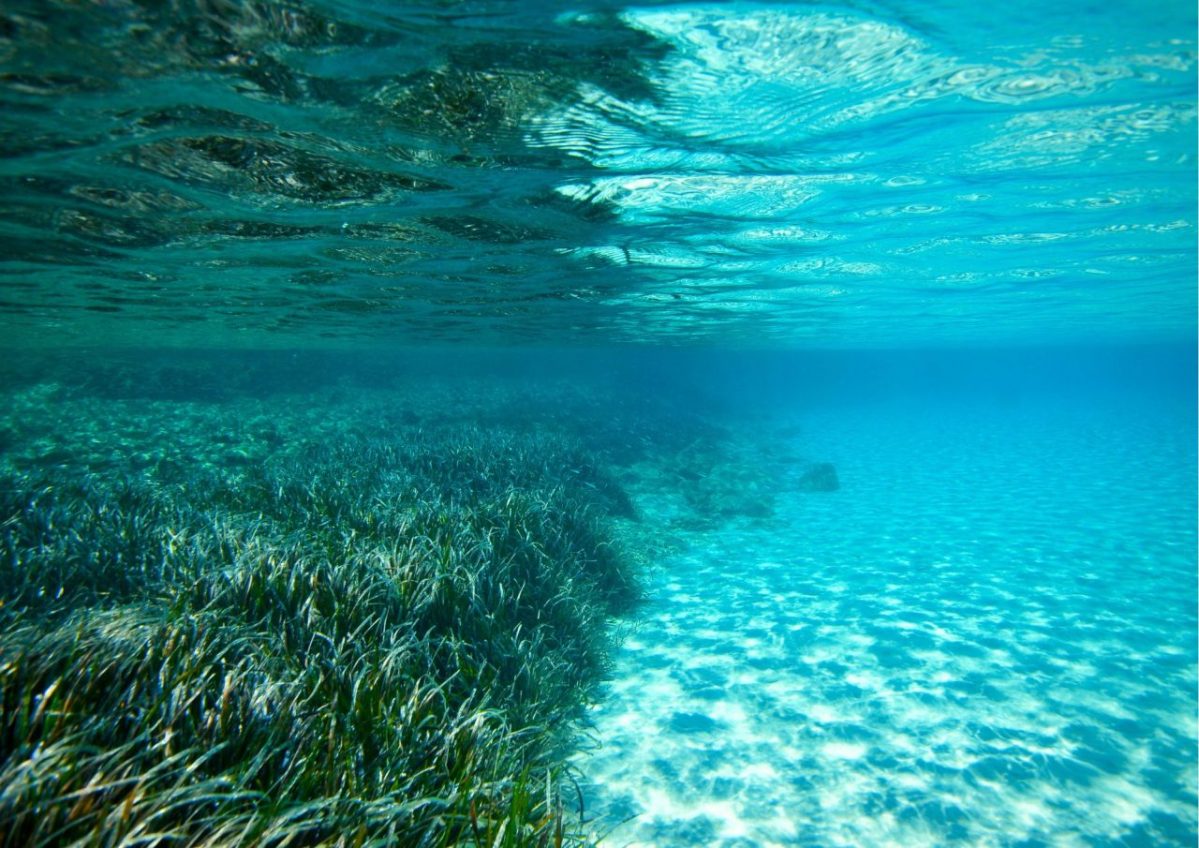The Posidonia meadows, capable of absorbing 35 times faster* CO₂ from a tropical rainforest are the key to an incredible "underwater reforestation" project in the Mediterranean*.
The Power of Posidonia
We are not exaggerating if we say that the Posidonia oceanica it is a fundamental pillar of the Mediterranean ecosystem. This “marine plant” plays a crucial role in maintaining biodiversity and protecting our coasts. Its extraordinary ability to absorb CO₂ makes it a precious ally in the fight against global warming. At a time when climate change is a growing concern, large-scale restoration of this species could offer a tangible solution.

MEDSEA: Future mission
MEDSEA, with its base of operations at Cagliari, is on the front lines of this battle. The organization has an ambitious goal: to restore degraded areas with one million posidonia cuttings in the Mediterranean. The first cuttings were planted off the Sinis Peninsula, on a surface of approximately 300m2 within the Marine Protected Area of the same name and 250m2 were planted in the Marine Protected Area of Capo Carbonara, off the coast of Villasimius.
And it's not just a matter of planting them: in addition to the restoration projects, all the necessary measures are planned to protect these plants from the fragility and threats of human activities.

of Posidonia oceanica anchored to the natural bottom by means of small stakes, to be removed after the formation of new roots. Image: MEDSEA Foundation
Protect to regenerate
To guarantee the safety of these precious marine plants, MEDSEA - in collaboration with the Flag Fishing Central Western Sardinia and the Marine Protected Area of the Sinis Peninsula - has installed around sixty anti-trawling barriers off the coast of Sinis. These concrete blocks prevent fishing boats from operating illegally in the area (trawling is prohibited in MPAs and less than 3 miles from the coast).
After all, seagrass beds are vital refuges and sources of nutrition for many aquatic organisms. The loss of these seagrass beds could have significant ecological impacts and could also lead to the release of huge carbon stocks accumulated over millennia.
Posidonia uber alles
The success of a campaign of this magnitude requires strong partnerships. MEDSEA has several partnerships with international brands such as Luna Rossa and Prada: definitely a nice parterre for a project that aims to enhance and use the natural resources we have at our disposal.
La Posidonia oceanica it is a gift from the Mediterranean, and with the help of initiatives like MEDSEA, we can hope for a greener and more sustainable future for our sea.
For more details and project updates, please visit https://www.medseafoundation.org/index.php/it/portfolio-ita/una-foresta-marina-per-salvare-il-pianeta/31
* It is important to note that the total surface area of Posidonia meadows is much smaller than that of tropical rainforests. Therefore, in absolute terms, rainforests sequester the most carbon globally. But, per unit area, the Posidonia meadows are much more efficient.


